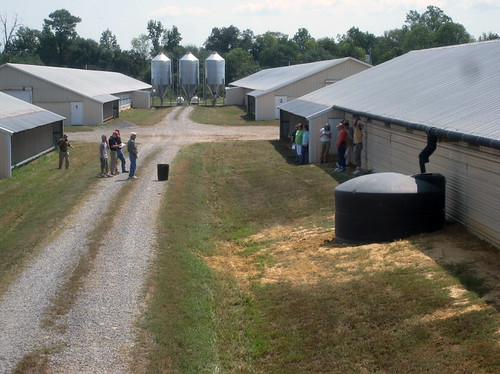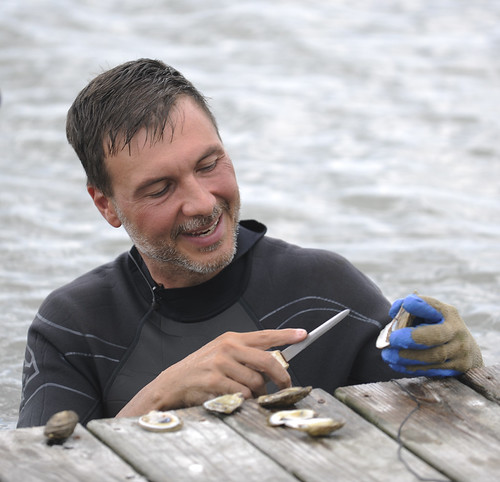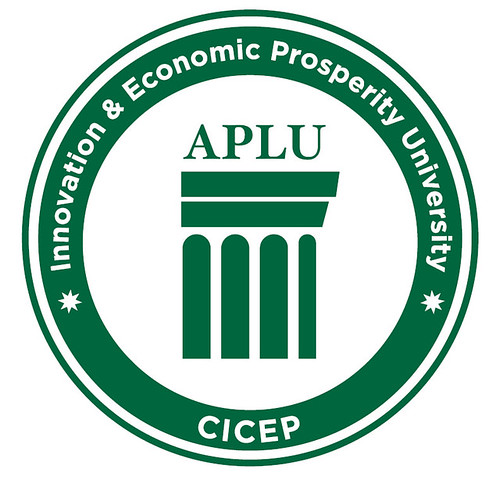Auburn University wins national Innovation and Economic Prosperity University award for economic development
Article body
Auburn University has won a top national Innovation and Economic Prosperity University award for its impact in economic development, announced today by the Association of Public and Land-grant Universities, or APLU. Auburn received the honor in the "place" category.
"This award is tremendous recognition for the university," Auburn University Vice President for Research and Economic Development John Mason said. "We are establishing partnerships with highly innovative ventures to spur economic growth and benefit citizens throughout the state and region. These relationships provide our students with learning experiences, while companies and organizations benefit from Auburn's world-class faculty and research."
The "place" award recognizes Auburn for excelling in community, social and cultural development work. Auburn's application for the award highlighted three programs: the Auburn University Rural Studio, the National Poultry Technology Center and the off-bottom oyster farming initiative at the Auburn University Shellfish Lab.
"Understanding local culture and social norms, workforce needs and public priorities is critical to providing communities with tools needed to prosper," Mason said.
The Rural Studio, part of the College of Architecture Design and Construction, affords students the opportunity to apply their skills as designers while also learning about the nature, history, culture, economy, architecture and community in the unique educational landscape that is rural West Alabama. There, student projects serve to cultivate local business and social networks, as well as create spaces for gathering, recreation and entertainment.
In Alabama and across the U.S., the National Poultry Technology Center works hand-in-hand with poultry growers and industry to improve the bottom-line profitability and quality of poultry production by providing timely applied research and education in housing, equipment, energy and environmental controls.
The Auburn University Shellfish Laboratory on Dauphin Island provides instruction, research and outreach in the area of shellfish ecology and production. Through their efforts, a 32-acre oyster farm "business park" along with hands-on training programs where participants establish commercial oyster farms on site has been established in Portersville Bay, Alabama.
Auburn had an overall $5.1 billion economic impact on the state economy in 2014 and created 23,600 jobs, in addition to direct employment, according to a recent self-study.
In June, Auburn was one of 18 universities nationwide named in APLU's third annual class of Innovation and Economic Prosperity Universities and was the only university named in the state of Alabama. The designation identifies institutions working to advance the economic well-being of their states, regions, and the nation through a variety of efforts.
Each year at the APLU annual meeting, four of the institutions that were designated as Innovation and Economic Prosperity Universities also receive awards recognizing exemplary work in this arena. The winners were announced today at the association's annual meeting in Indianapolis.
Related Media
Media interested in this story can contact Communications Director Preston Sparks at (334) 844-9999 or preston.sparks@auburn.edu.
Auburn University is a nationally ranked land grant institution recognized for its commitment to world-class scholarship, interdisciplinary research with an elite, top-tier Carnegie R1 classification, life-changing outreach with Carnegie’s Community Engagement designation and an undergraduate education experience second to none. Auburn is home to more than 30,000 students, and its faculty and research partners collaborate to develop and deliver meaningful scholarship, science and technology-based advancements that meet pressing regional, national and global needs. Auburn’s commitment to active student engagement, professional success and public/private partnership drives a growing reputation for outreach and extension that delivers broad economic, health and societal impact.








